#andrey zakharov
Text
Pressure on social media companies dates back to 2015, when a law came into force obliging them to store the personal data of Russian users on Russian territory and giving the government the power to fine them, or close them down, for not doing so. None of the Western companies have complied, which led to the closure of LinkedIn in 2016. Google, Meta and Twitter have collectively been fined more than $600,000 since the start of 2020.
It was in 2016 that requests from the Russian government to Google to remove videos from YouTube and to block certain search results began to rapidly increase. The company's transparency reports show that over the last 10 years it has received more such requests from Russia than the rest of the world combined - Google says a third of them relate to "national security".
Like the other Western companies, Google complies with some Russian requests but not with others.
Efforts to control the spread of undesirable information on social media accelerated further in early 2021, after the return of Alexei Navalny to Russia from hospital in Germany, where he had been treated for poisoning with the chemical weapon Novichok.
Navalny was immediately arrested, leading to unsanctioned protests in Moscow, St Petersburg and other cities, which supporters widely advertised on social media.
This prompted angry complaints from Roskomnadzor. The posts were quickly removed from the third most popular social network in Russia, VKontakte (or VK.com), owned at that point by oligarch Alisher Usmanov, the former Arsenal football club shareholder.
But Western social networks were less accommodating, so Roskomnadzor started taking them to court and fining them.
Its next step, in March, was to slow down traffic on Twitter, for its refusal to delete these and other posts. Pictures and videos, in particular, became slower to load.
And later in the year it persuaded Google and Apple to remove from their stores a tactical voting app, designed to help Navalny sympathisers unite behind a single candidate in local elections, thereby maximising the chance of defeating the candidate of the ruling United Russia party.
The head of Navalny's team, Ivan Zhdanov, denounced the companies for what he described as "a shameful act of political censorship".
He later tweeted part of a letter from Apple, which pointed out that prosecutors had said the app was enabling illegal "interference in elections" and that media regulator Roskomnadzor had warned the company that it was promoting an "extremist organisation"
— How Russia tries to censor Western social media
#andrei zakharov#ksenia churmanova#internet#social media#censorship#politics#russian politics#russia#vladimir putin#alexei navalny#ivan zhdanov#linkedin#google#meta#twitter#youtube#vkontakte#apple#roskomnadzor
4 notes
·
View notes
Text


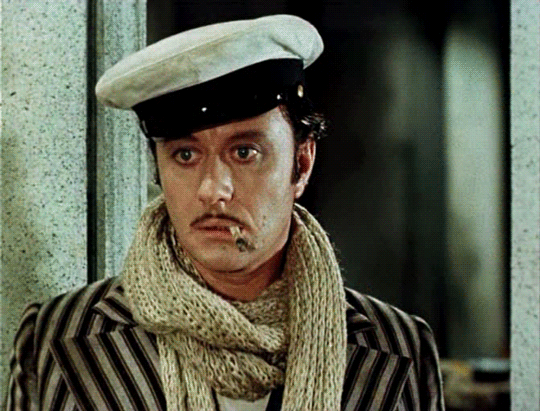
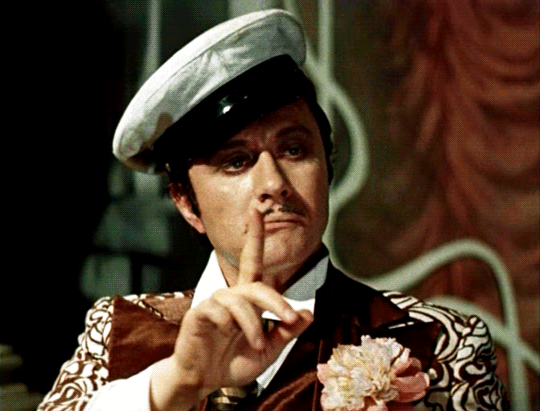
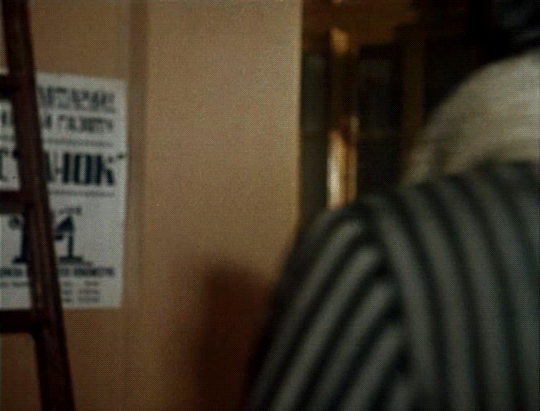
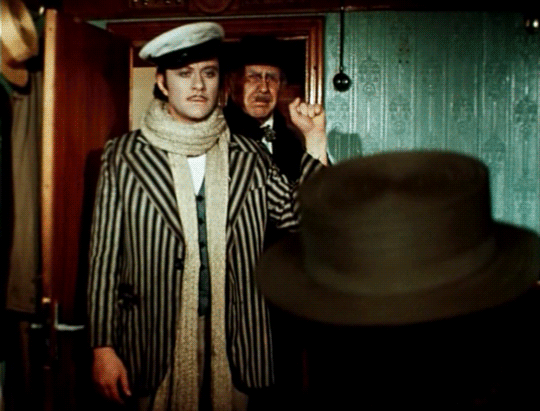
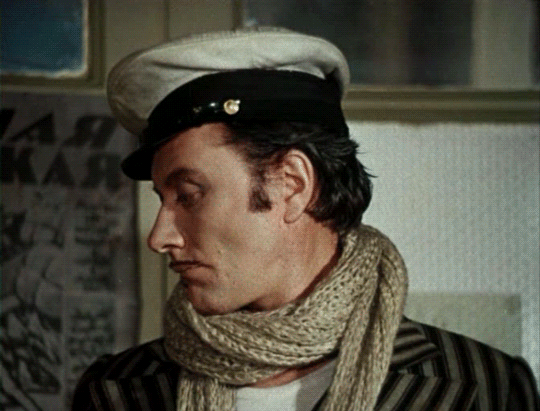
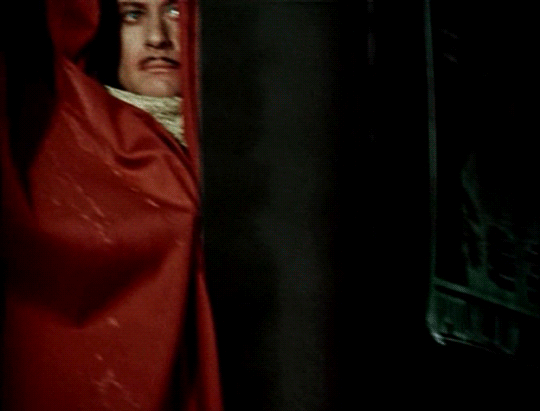
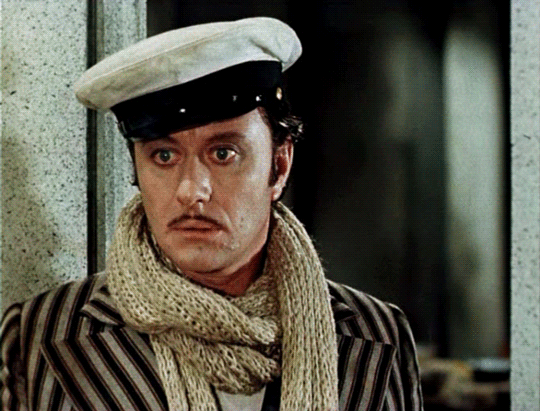

Andrei Mironov as Ostap Bender
'The Twelve Chairs' (1976), dir. Mark Zakharov
[eng. sub.: episode 1, episode 2, episode 3, episode 4]
#soviet cinema#sovietcinemaedit#cinemaspam#dailyflicks#filmedit#dailyworldcinema#dailykino#the twelve chairs#andrei mironov#ostap bender#my gifs#aamedit#андрей миронов#двенадцать стульев#остап бендер
102 notes
·
View notes
Text
In the summer of 2023, a poet by the name of Gennady Rakitin began publishing his “patriotic” works on VKontakte, Russia’s version of Facebook. He wrote about war, mercenaries killed in action, the Fatherland, and Russia’s “leader.” Russian lawmakers and senators soon began following his page en masse. And his poems were entered into competitions, celebrated at festivals, and shared on channels dedicated to “Z-poetry.”
But it turns out that Gennady Rakitin doesn’t exist. According to Russian journalist Andrey Zakharov, some of his acquaintances are behind the account — and these anti-war activists have actually been publishing translations of poetry written in Nazi Germany during the 1930s and 1940s.
The Gennady Rakitin page has an AI-generated profile picture and includes only sparse details about the “poet,” describing him as a 49-year-old who graduated from the Philology Department at Moscow State University. But this was enough to fool dozens of Russian senators and lawmakers, who added Rakitin as a “friend.”
Rakitin’s friends list includes Russian senators Dmitry Rogozin and Andrey Klishas, State Duma deputies Dmitry Kuznetsov and Nina Ostatina, Putin’s cultural advisor Elena Yampolskaya, and pro-Kremlin “war correspondent” Yuri Kotenok. Zakharov counted a total of 95 State Duma lawmakers and 28 senators among Rakitin’s followers. The account’s creators said that they started out by adding “various public figures and just random people” as friends. “When a critical mass of well-known names was reached, we went after lawmakers and other celebrities,” they explained. The activists also claimed that they “didn’t invest a dime” in promoting the page.
The works published on Rakitin’s profile include, for example, a translation of Eberhard Möller’s poem “The Führer” — accompanied by a photo of Vladimir Putin emblazoned with a pro-war slogan. Zakharov described Möller as a “committed Nazi and anti-Semite, who became a member of the Nazi Party even before Hitler came to power.” On February 23, 2024, a VKontakte group called “SVO. Quotes from Vladimir Putin. Russia” shared the translation of Möller’s poem to its 112,000 followers.
The Rakitin page also shared a translation of a poem by Herybert Menzel, a German writer who joined the Nazi Party in 1933 and later became a Stormtrooper. The original poem in question was inspired by a portrait of Adolf Hitler and includes reflections on “what it means to be a son of Germany.” Another Rakitin poem takes a work by Nazi songwriter Heinrich Anacker and replaces the title “Faceless Stormtrooper” with “Faceless PMC Soldier” (a reference to Russian mercenaries fighting in Ukraine).
Rakitin only “wrote” 18 poems in total, but they’ve made a splash in pro-war poetry competitions and festivals. In early June, one of Rakitin's poems won a prize at an All-Russian Patriotic Poetry Competition held by the Kaluga branch of the Professional Writers’ Union, reaching the semifinals in the “Poems about war and defenders of the Motherland” category. The magazine Moskva entered another one of Rakitin’s poems into a “Patriotic free verse” competition.
6 notes
·
View notes
Text
Investigative Journalist Wanted by Russia for Putin Love Child Report
CC RAW FATAL POLY BS
STOP RUSSIAN VANILLA ISIS
0 notes
Note
got any proof of russian psyops other than what tumblr told you?
There was a group called the Internet Research Agency operating in Russia. It was also known as the “troll farm.” The story was first broken by russian BBC reporter Andrey Zakharov in 2016. If you have access to HBO Max, there’s a good documentary on it called “Agents of Chaos.” Episode one focuses on the troll farm, but the whole thing is worth a watch if you have the time.
Here’s an article on it and the indictments as well:
#please do research rather than making assumptions#i don’t get my news from tumblr#nobody should#always look into things yourself#at least the important stuff#ask and you shall receive
1 note
·
View note
Text
Russia, abbattuto un aereo della Wagner: «A bordo c’era Prigozhin, nessun superstite»

Russia, abbattuto un aereo della Wagner: «A bordo c’era Prigozhin, nessun superstite».
Un jet privato con 10 persone a bordo si è schiantato mentre era in volo tra Mosca e San Pietroburgo. A bordo, riferisce la Tass, anche il capo della Wagner Evgenij Prigozhin. Non ci sarebbe alcun superstite.
L’aereo, che era stato inserito nella lista delle sanzioni redatta dagli Usa, stando a quanto si apprende, sarebbe stato abbattuto nella regione di Tver, nella Russia centrale, ed era di proprietà del capo del gruppo di mercenari, che l’aveva usato per volare in Bielorussia dopo il tentato colpo di Stato di due mesi fa.
Sulla lista dei passeggeri figura anche il vice di Prigozhin nella gerarchia della Wagner, Dmitry Utkin. Secondo membri del gruppo paramilitare, sarebbero morti entrambi. Fonti filorusse riferiscono che “il business jet Embraer Legacy 600 con numero di registrazione RA-02795, che apparteneva a Prigozhin, è stato abbattuto dal fuoco della difesa aerea russa”. Per ora i corpi recuperati sarebbero 8.
L’Agenzia federale russa del trasporto aereo ha riferito in una nota che “è stata avviata un’indagine sullo schianto dell’aereo”. Il media russo Fontanka conferma che la cerchia ristretta di Prigozhin non riesce a mettersi in contatto con lui.
Il giornalista investigativo Andrey Zakharov, citato dal sito russo Meduza, ha riferito che il capo della Wagner, accompagnato da tutto lo staff di comando, sarebbe rientrato oggi in Russia dall’Africa.
Intanto, mentre arrivano le notizie sull'incidente aereo, il Presidente russo Vladimir Putin ricorda l'80esimo anniversario della vittoria nella battaglia di Kursk durante la seconda guerra mondiale: «Sono orgoglioso di voi», rivolgendosi ai militari.
«Abbiamo visto le notizie. Se confermate, nessuno dovrebbe essere sorpreso. La disastrosa guerra in Ucraina ha portato un esercito privato a marciare su Mosca, e ora - sembrerebbe - a questo». Questa la reazione della portavoce del Consiglio di sicurezza nazionale della Casa Bianca, Adrienne Watson.
Alle 21 circa (ora italiana) il canale tv statale Rossiya24 annuncia la morte di Prigozhin.
https://videopress.com/v/Wejjd5z6...
#notizie #news #breakingnews #cronaca #politica #eventi #sport #moda
Read the full article
0 notes
Photo

>>> Collection Smokers | Suits & White collar_B&W*
#27
[ > Models smoke ] [ Andrey Zakharov | Source_insta ]
#costumesmokersNB#costumesmokers#Andrey Zakharov#smokingmodels#smokingmodelsNB#tattoosmokers#tattoosmokersNB#shirtlesssmokers#shirtlesssmokersNB#shirtlesstattooedsmoker#shirtlesstattoedsmokerblack#cigarette#smokingguys#smokingguysNB#lovesmokerguys
13 notes
·
View notes
Text
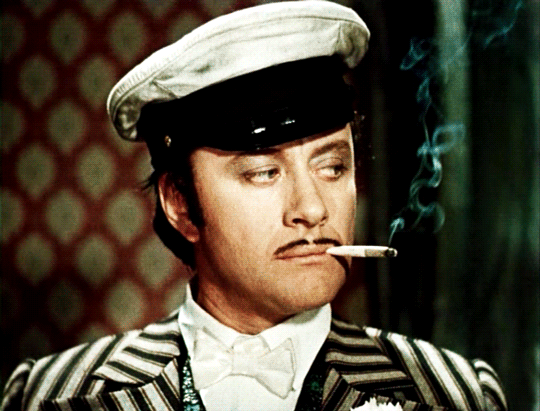
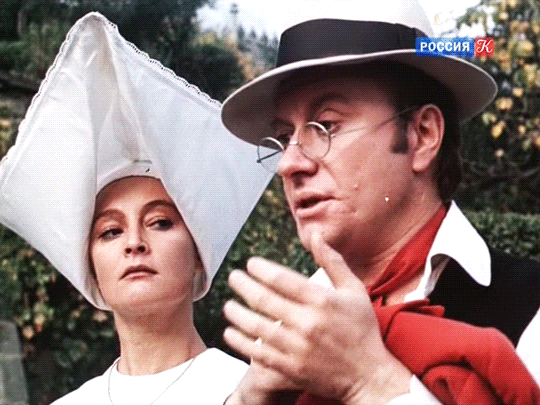

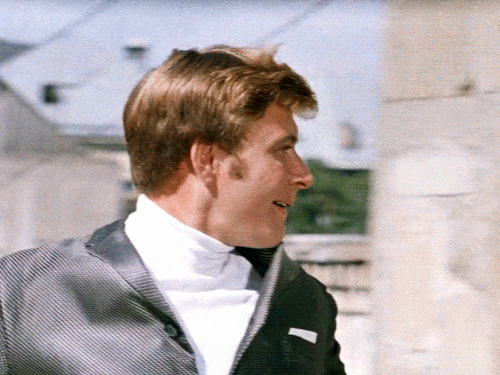
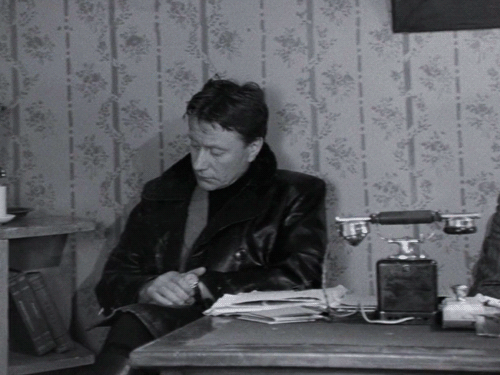
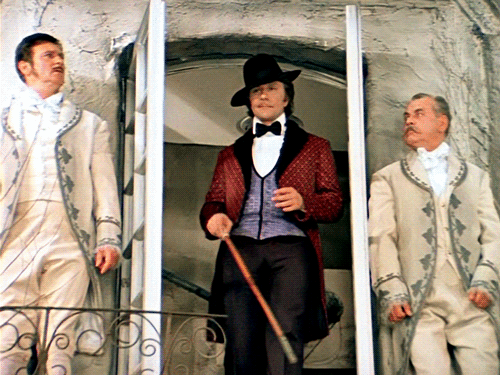
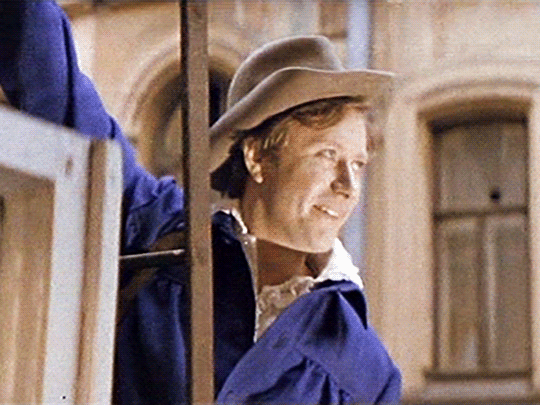

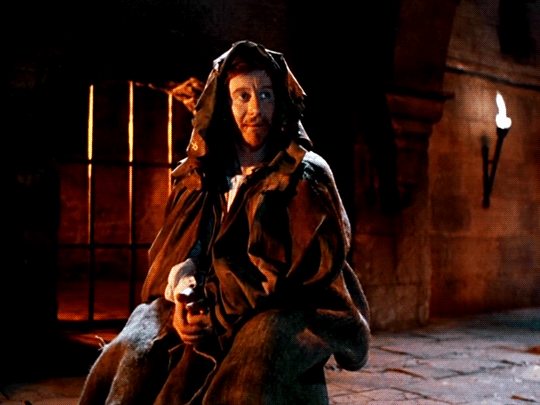
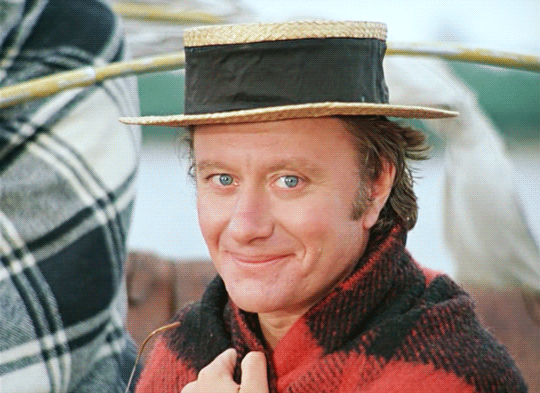
Andrei Mironov (07.03.1941 – 16.08.1987)
Tatyana Klevantseva: 'He was thought an ideal actor possessing power over all genres of cinema and theater. He was so tremendously popular during his lifetime, that even years after his death his birthdays remained a major event of Moscow's cultural life.'
'Many actors frankly confess that Andrei Mironov was simply the best. As time goes his legend continues to grow.'
A minor planet 3624 Mironov, discovered by Soviet astronomers Lyudmila Karachkina and Lyudmila Zhuravleva in 1982 is named after him.
movies in the post:
'The Twelve Chairs' (1976), dir. Mark Zakharov
'Heavenly Swallows' (1976), dir. Leonid Kvinikhidze
'The Straw Hat' (1974), dir. Leonid Kvinikhidze
'The Diamond Arm' (1969), dir. Leonid Gaidai
'My Friend Ivan Lapshin' (1985), dir. Aleksei German
'An Ordinary Miracle' (1978), dir. Mark Zakharov
'Property of the Republic' (1971), dir. Vladimir Bychkov
'Three Plus Two' (1963), dir. Genrikh Oganesyan
'The Story of Voyages' (1983), dir. by Alexander Mitta
'Three Men in a Boat' (1979), dir. Naum Birman
#soviet cinema#userkino#dailyactors#filmgifs#cinemaspam#filmedit#sovietcinemaedit#dailyworldcinema#dailykino#dailyflicks#andrei mironov#андрей миронов#my gifs#aamedit#happy birthday andrei aleksandrovich#birthday
41 notes
·
View notes
Text
With more than 98 percent of precincts reporting, Vladimir Putin has claimed a fifth presidential term, collecting more than 87 percent of the ballots with official turnout above 74 percent. Putin’s closest rival, Nikolai Kharitonov of the Communist Party, failed to crack even five percent. The voting itself presented no surprises. Putin has held power in Russia for nearly a quarter century, and his next term in office runs to 2030 when he’s free to run for reelection yet again, thanks to constitutional amendments adopted in 2021. Meduza breaks down the weekend’s protests, ballot-box sabotage, and violence.
’Noon Against Putin’
With Sunday’s voting outcome a forgone conclusion, the only unknowns were what, if any, protest activity might occur. Former St. Petersburg municipal deputy Maxim Reznik devised a scheme that became known as “Noon Against Putin,” calling on the president’s opponents to synchronize their voting at 12 p.m. on Sunday, March 17. The plan’s premise was that Russia now prohibits all opposition demonstrations, but voting allows a public assembly without violating the authorities’ lockdown. “Noon Against Putin” won Alexey Navalny’s endorsement and the support of prominent opposition members in exile, including Mikhail Khodorkovsky, Dmitry Gudkov, Yulia Galyamina, and others.
“Noon Against Putin” crowds were spotted across Russia, beginning in the Far East and moving westward as voting continued. Meduza tracked midday lines outside voting precincts in Novosibirsk, Chelyabinsk, Perm, Yekaterinburg, Tomsk, Moscow, St. Petersburg, and other cities.
At embassies abroad, where Russians could assemble openly with anti-Putin, anti-war political banners, voters lined up at noon in Vilnius, Riga, Yerevan, Tbilisi, Belgrade, Podgorica, Paris, Brussels, Barcelona, London, Lisbon, Bishkek, Astana, Tel Aviv, The Hague, and other cities. One of the largest crowds assembled in Berlin, where Alexey Navalny’s widow, Yulia Navalanaya, voted after waiting in line for roughly six hours. An eyewitness told Meduza that he overheard Russian embassy staff discussing Navalnaya’s presence and debating whether they could prevent her from entering the building to vote. (The officials decided that they couldn’t stop her.)
Voter intimidation
A day before Sunday’s noon campaign, numerous readers told Meduza and Agentstvo Media that they’d started receiving threatening messages on Telegram and Signal from automated bot accounts. The messages accused the individuals of supporting “extremist ideas” and demanded that they vote “without long lines.”
Journalist Andrey Zakharov examined several dozen of these reports and concluded that the messages targeted people who shared two conditions: (1) they were registered to vote in Moscow or had been removed from their local precinct’s voter list, and (2) they had publicly traceable ties to Alexey Navalny or his Anti-Corruption Foundation. Zakharov found that “sympathies” with Navalny included attending his burial in Moscow, suggesting that surveillance cameras or other footage were used to identify them.
Before voting began, state prosecutors in Moscow responded to Internet chatter about “Noon Against Putin” by issuing a warning that any “unpermitted demonstrations” with the aim of “violating election laws” and preventing “the free exercise of voting rights” were punishable by up to five years in prison. By the end of voting, monitors at OVD-Info counted more than 86 arrests in 21 different cities across Russia.
In lieu of waving banners and shouting in crowds, many opposition voters resorted to “spoiling” their ballots. People scrawled anti-Putin, anti-war slogans on the paper, wrote the names of Alexey Navalny and Yulia Navalnaya, wrote Navalny’s dying wish, “Don’t give up,” and so on. Other messages on ballots read, “Love is stronger than death,” “Putin is a usurper, thief, and murderer,” and at least one person drew a steaming pile of feces over Putin’s name. Meduza collected photos of these ballots here.
Scammer sabotage
By Saturday morning, police had opened more than a dozen felony cases in response to individuals who sprayed dye, ink, or paint into ballot boxes. Some people even started fires, and one woman reportedly lost her arm while setting off a firecracker. According to media reports, the suspects arrested in these incidents say they were coerced into these acts by telephone scammers who fooled them out of their personal savings and then offered to return the money in exchange for sabotaging the local voting precinct. Attempts to damage ballot boxes were reported in Moscow, Simferopol, Volgograd, Novosibirsk, Rostov, and Karachay-Cherkessia.
There hasn’t been a uniform police response to these incidents. For example, in Yekaterinburg, a chemical scientist who teaches at Ural Federal University was arrested after spraying green dye into a ballot box. She says scammers told her this was the price for returning her life savings of 15 million rubles ($162,100). Officials let her off with charges of disorderly conduct. On the other hand, a 20-year-old woman in Moscow is now in pretrial detention awaiting felony charges after spraying the same substance into a ballot box at her precinct.
Battlefront voting
Throughout Russia’s three-day presidential voting, the Belgorod region remained under regular drone attack and rocket fire. Ukrainian attacks disrupted voting on several occasions and killed at least two civilians, including a 16-year-old girl, according to Governor Vyacheslav Gladkov.
In territories that Russia invaded and annexed after February 2022, early voting kicked off ahead of March 15. Officials allowed residents to cast ballots using whatever identification they presented, including Ukrainian passports. Voting was conducted in the presence of soldiers. In Luhansk, Donetsk, Zaporizhzhia, and Kherson, official turnout ranged from 83 to more than 88 percent.
1 note
·
View note
Photo

Giorgio Armani Resort 2017
#Giorgio Armani#giorgio armani suits#giorgio armani archive#giorgio armani archives#giorgio armani resort#mert and markus#ad campaign#fashion campaign#andrey zakharov#essential homme#parisian style#parisian mood#parisian vibe#parisian homme
37 notes
·
View notes
Photo

Robin Hölzken & Andrey Zakharov by Jack Waterlot for REPLAY S/S'18 Ad Campaign.
3 notes
·
View notes
Photo




Body Inspiration: Andrey Zakharov, model
23 notes
·
View notes





